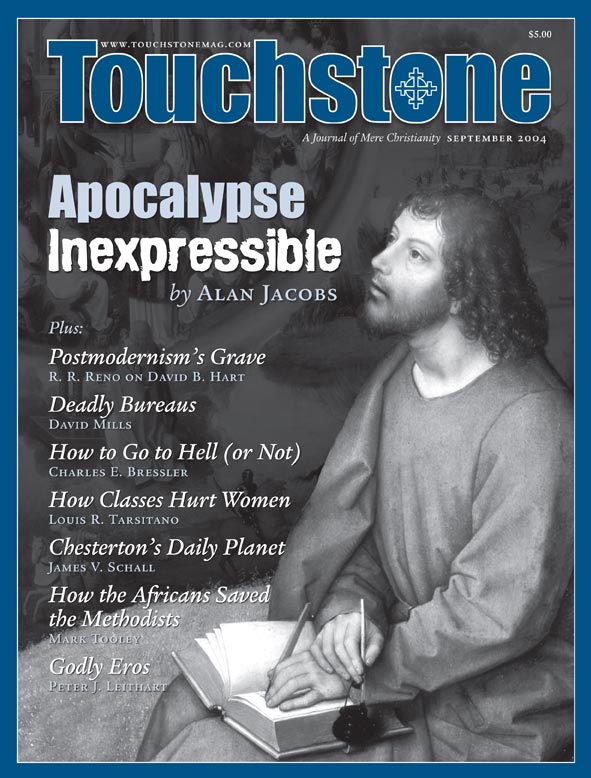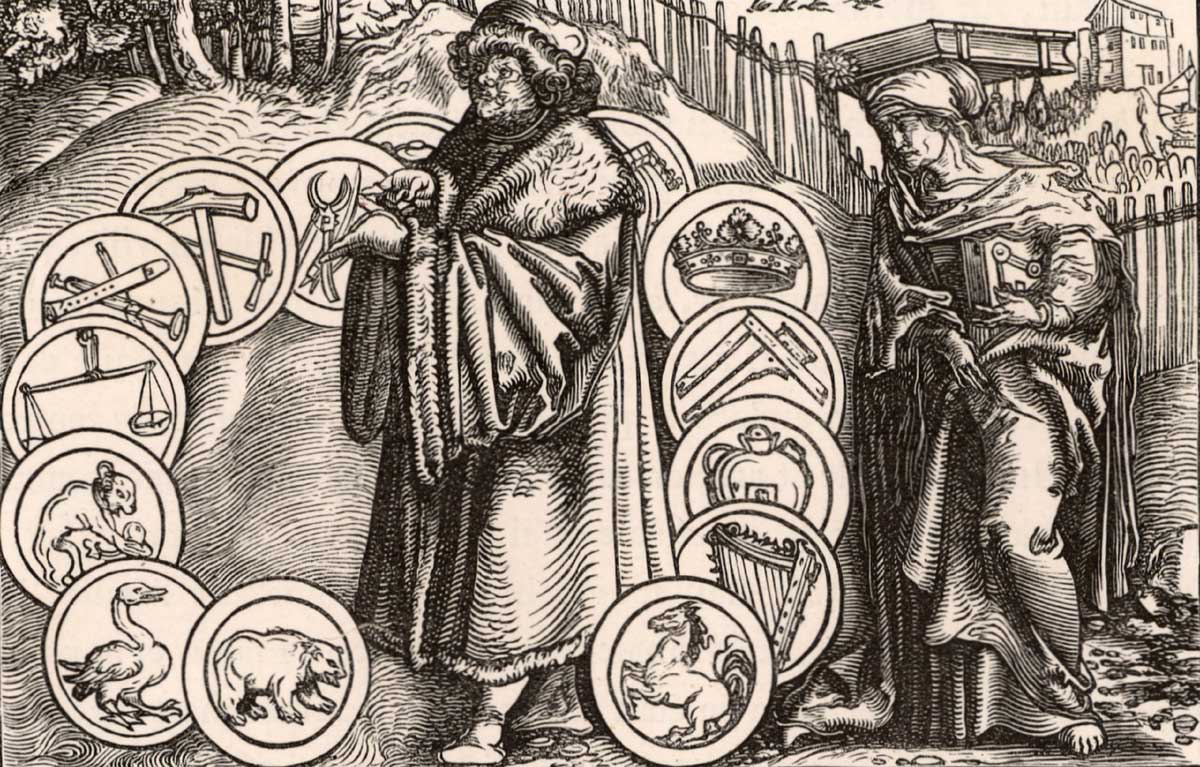View
Miraculous Daily Planet
James V. Schall on G. K. Chesterton’s Take on Newspapers & Truth
Recently, I was talking to a student about newspapers. He was diligently reading the New York Times and wanted to know if I read it daily. I confessed that I did not. “Why?” he wondered. “Well,” I replied, “no page in the New York Times is not an editorial page.”
G. K. Chesterton’s view of newspapers was pretty much mine: What you find there are opinions, not truth. This is how he put it in The Illustrated London News, in a column titled “Newspaper Snippets and the Truth”:
The part of journalism that I would feel tempted to suppress would be the serious part: the leading articles and the leading reviews and the authoritative and infallible communications from foreign correspondents. Every one seems to assume that the unscrupulous part of newspaper-writing will be the frivolous or jocular parts. This is against all ethical experience. Jokes are generally honest. Complete solemnity is almost always dishonest.
Speaking of the then-proprietor of the London Times, Chesterton continued, “I do not mind in the least getting my jokes from the Marquis of Harmsworth . . . it is only the idea of getting my views from him that seems like carrying a joke too far.” We are free to laugh at someone else’s jokes. They are honestly funny. But someone else’s views we must first judge against a criterion of truth before we dare make them ours.
What is a newspaper for, then? This is Chesterton’s considered advice: “I earnestly adjure the Seeker After Truth (if he still survives) to leave the earnest and elaborate parts of the newspapers and join me in pouring over the snippy paragraphs.” To illustrate his point, he tells of reading in a daily paper of a young man enlisting in the British army at Portsmouth. Asked to indicate his religion, he wrote, with “equal and ceremonial gravity,” “Methuselahite.” Methuselah lived some 969 years, and is said to still hold the human record, but it is not indicated that he founded a religion.
When the soldier was finally asked what was the purpose of this religion, he replied, “to live as long as he could.” Chesterton was quite entranced with this soldier’s answer. “Considered as an incident in the religious history of Europe,” Chesterton wrote,

that answer of that soldier was worth more than a hundred carloads of quarterly and monthly and weekly and daily papers discussing religious problems and religious books. Every day the daily paper reviews some new philosopher who has some new religion; and there is not in the whole two thousand words of the whole two columns one word as witty or as wise as that word “Methuselahite.”
From this we learn that Chesterton’s columns were probably in two columns of two thousand words. We also learn that the young soldier indeed had an original insight about what we wish for in this world and a symbolic way of expressing it.
Journalism’s Weakness
But if we cannot get what is new or true from the daily paper, what can we find there? “The plain truth is that, from official journalism, we cannot get the plain truth,” Chesterton wrote in a column of May 1914, entitled “The Ignorance of Newspapers.” “The daily paper is really a rich and suggestive document: personally, I love reading the day before yesterday’s daily paper. Some of the finest fun and wisdom in the world can be found buried in the files of old newspapers. But the daily paper is never daily. The daily paper is never up to date.”
Newspapers contain truths that their journalists themselves do not often see. Why do they not see them? “It is one of the great weaknesses of journalism as a picture of our modern existence that it must be a picture made up entirely of exceptions,” Chesterton wrote in his novel The Ball and the Cross,
We announce on flaring posters that a man has fallen off a scaffolding. We do not announce on flaring posters that a man has not fallen off a scaffolding. Yet this latter fact is fundamentally more exciting, as indicating that that moving tower of terror and mystery, a man, is still abroad upon the earth. That the man has not fallen off a scaffolding is really more sensational; and it is also some thousand times more common. But journalism cannot reasonably be expected thus to insist upon the permanent miracles. Busy editors cannot be expected to put on their posters, “Mr. Wilkinson still safe” or “Mr. Jones, of Worthing, not dead yet.”
What would a headline shouting “Mr. Wilkinson still alive” mean? It would mean that normality is more interesting than oddity. It is more exciting to know that the laws of gravity can safely be defied by scaffolding than to know that Smith fell off, allowing the laws of gravity to carry him to his demise. Yet the headlines draw our attention to what is not working, not to what does work. Notice, too, how Chesterton describes what we are: “man, that moving tower of terror and mystery who is abroad on this earth”—still abroad, that is, if he does not fall from the scaffolding, a truth that is so common that no one notices its wonder.
The normal man, Chesterton wrote in “A Defence of Useful Information,” an essay from one of his earliest books, The Defendant, sees this world “as a work of art.” By contrast, “the merely educated can scarcely ever be brought to believe that this world is itself an interesting place.” We can become, through our education, so disadvantaged that we do not see what is in front of our very eyes.
Normal folks have a “taste for news,” which Chesterton called “that primitive and typical taste of man.” They take
pleasure in hearing the mere fact that a man has died at the age of 110 in South Wales, or that the horses ran away at a funeral in San Francisco. Large masses of the early faiths and politics of the world, numbers of the miracles and heroic anecdotes, are based primarily upon this love of something that has just happened, this divine institution of gossip. When Christianity was named the good news, it spread rapidly, not only because it was good, but also because it was news.
One of the essential mysteries of the world is that something new can happen in it. We do not merely repeat what went before.
The Navvy’s Newspaper
To illustrate this point, Chesterton next addresses the question of what the average “navvy”—a word that does not mean a sailor but a construction worker on a canal or an unskilled worker—is interested in. He is not interested in “those struggles of Parliaments and trade unions, which sometimes are, and are always supposed to be, for his benefit.” No, he is interested in “the fact that an unusually large whale has been washed up on the coast of Orkney, or that some leading millionaire like Mr. Harmsworth is reported to break a hundred pipes a year.” Is the fact that he is interested in such apparently frivolous things a bad thing?
No. The average man “still keeps something of that feeling which should be the birthright of men.” He feels
that this planet is like a new house into which we have just moved our baggage. Any detail of it has a value, and, with a truly sportsmanlike instinct, the average man takes most pleasure in the details which are most complicated, irrelevant, and at once difficult and useless to discover.
Chesterton did not deny that such interests could be trivial, yet newspapers get their readers by telling such stories. He adds, “perhaps the taste for shreds and patches of journalistic science and history is not, as is continually asserted, the vulgar and senile curiosity of a people that has grown old, but simply the babyish and indiscriminate curiosity of a people still young and entering history for the first time.” These apparently exaggerated or amusing stories published in magazines and papers are the same stuff of which our kind speaks “in taverns.”
Chesterton has a hold on something rather momentous here. This same taste for news is the source of science as well. “Science itself is only the exaggeration and specialization of this thirst for useless fact, which is the mark of the youth of man.” But—and here is the problem—“science has become strangely separated from the mere news and scandal of flowers and birds; men have ceased to see that a pterodactyl was as fresh and natural as a flower, that a flower is as monstrous as a pterodactyl.”
This link between the interest in common and amusing things and the nature of science concerned Chesterton even in 1901. “The rebuilding of this bridge between science and human nature is one of the greatest needs of mankind. We have all to show that before we go on to any visions or creations we can be contented with the planet of miracles.” No wonder he preferred to be a journalist rather than a novelist. There were more miracles in the everyday life of man on this planet, as recorded in the snippy paragraphs of newspapers, than are concocted by scientists or novelists—if we would just notice them. •
James V. Schall S. J., is Professor in the Department of Government at Georgetown University. Among his many books are A Student?s Guide to Liberal Learning and On the Unseriousness of Human Affairs (both from ISI).
subscription options
Order
Print/Online Subscription

Get six issues (one year) of Touchstone PLUS full online access including pdf downloads for only $39.95. That's only $3.34 per month!
Order
Online Only
Subscription

Get a one-year full-access subscription to the Touchstone online archives for only $19.95. That's only $1.66 per month!
bulk subscriptions
Order Touchstone subscriptions in bulk and save $10 per sub! Each subscription includes 6 issues of Touchstone plus full online access to touchstonemag.com—including archives, videos, and pdf downloads of recent issues for only $29.95 each! Great for churches or study groups.
Transactions will be processed on a secure server.
more from the online archives
calling all readers
Please Donate
"There are magazines worth reading but few worth saving . . . Touchstone is just such a magazine."
—Alice von Hildebrand
"Here we do not concede one square millimeter of territory to falsehood, folly, contemporary sentimentality, or fashion. We speak the truth, and let God be our judge. . . . Touchstone is the one committedly Christian conservative journal."
—Anthony Esolen, Touchstone senior editor










